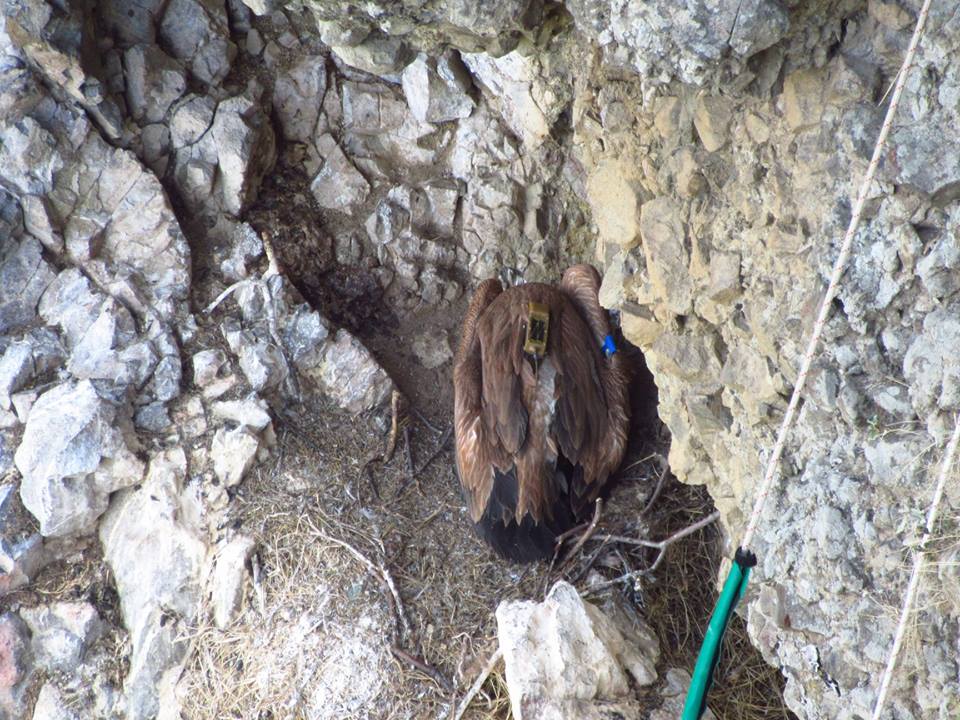
More Griffon vultures have been tagged in the Rhodope Mountains of Bulgaria helping the LIFE RE-Vultures conservation team better understand their movements along the cross-border area mountain range.
Tagging operation
At the end of June seven juvenile and immature griffon vultures were successfully captured and tagged with rings and wing tags in the Rhodope Mountains of Bulgaria, while samples of their blood and feathers were taken. The tagging operation will add to the valuable data currently being used to support the conservation efforts being done there.
The operation was carried out as part of the ongoing LIFE Re-Vultures project. The captured birds, aged between one and four, were also tagged with GPS transmitters and a further two more young chicks currently in nests will be tagged in mid-July.
The GPS data will help the project team gain insight into the movement of vulture populations in the monitoring area and better understand the various threats that they face, and the best ways to support the species’ comeback.
The number of tagged Griffon vultures in Rhodope Mountains rewilding area now stands at 25 birds. Previously fitted transmitters have already supplied valuable data on vulture migration, and this will soon be made available online via the LIFE RE-Vultures project website.
Vultures in the Balkans
In the Balkans the Rhodope mountain chain that crosses the border between Bulgaria and Greece is both an important breeding ground and foraging site for the Griffon and Cinereous vultures. The Balkans’ only breeding colony of Cinereous vultures consisting of around 35 pairs are found in the Dadia Forest in the Greek section of the mountains, around 25km from the Bulgarian border. The Griffon vulture breeds in the Bulgarian Rhodopes (70+ pairs), and now also in the Central Balkan mountains after the successful reintroduction there,whilst in Greece the population which numbered between 400-500 pairs in the 1980’s is now down to just 20 with seven or eight of those in the Greek Rhodope Mountains.
LIFE RE-Vultures
Starting in 2016, the five-year LIFE RE-Vultures project was developed by Rewilding Europe, in collaboration with the Rewilding Rhodopes Foundation and us here at the Vulture Conservation Foundation along with a range of other partners. The aim of the project is to support the recovery and further expansion of the black and griffon vulture populations in the Rhodope Mountain by improving natural prey availability, and by reducing mortality through factors such as poaching, poisoning and collisions with power lines.
